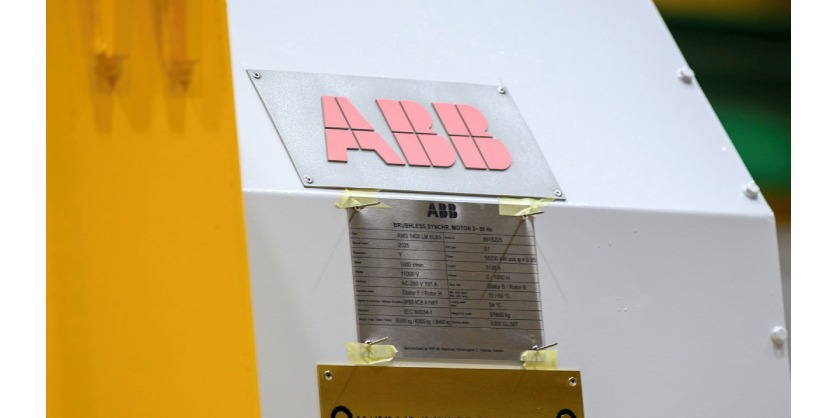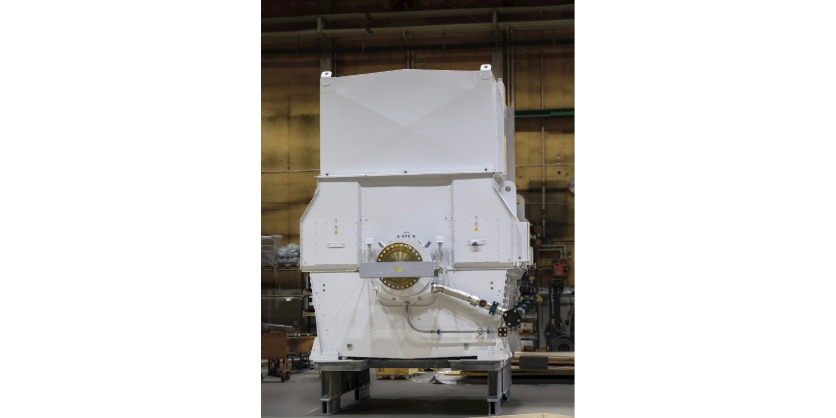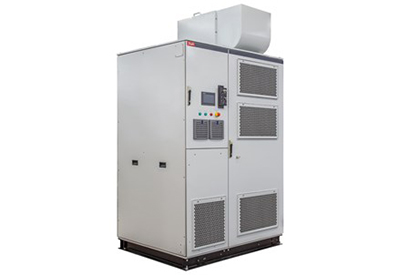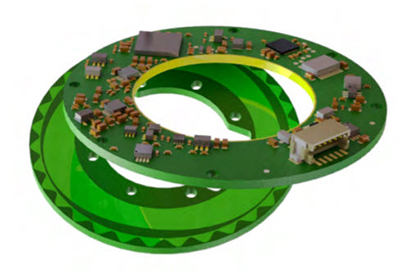ABB Motor Sets New World Record by Achieving 99.13% Energy Efficiency
May 28, 2025

- A large synchronous electric motor created for a steel plant in India is the most efficient ever made, thanks to Top Industrial Efficiency design
- The steel plant willl have estimated electricity cost savings of around $6 million through improved energy efficiency over the motor’s 25-year lifespan
- The investment in energy efficiency will have a projected payback period of just over three months
ABB has broken its own world record for energy efficiency in large synchronous electric motors with a new motor designed in line with its Top Industrial Efficiency (TIE) initiative which delivers equipment which exceeds standard performance benchmarks. ABB’s TIE motors and generators are engineered to surpass current efficiency benchmarks, helping customers reduce electricity usage, operating costs, and total cost of ownership (TCO) without compromising performance or adding complexity.
The motor, destined for a steel plant in India, has achieved an efficiency rating of 99.13% during testing, a substantial improvement over ABB’s previous world record of 99.05% set in 2017. The efficiency rating is the ratio between the energy a motor draws and the amount it turns into motion. The theoretical limit is 100% efficiency. Getting closer to this target becomes increasingly challenging in terms of the motor design and manufacture. This is why the previous world record stood for 8 years.
Opting for a TIE-optimized motor, rather than the standard design with 98.64% efficiency level , will enable the customer to save around 61 GWh of energy and $5.9 million in electricity costs over a 25-year lifespan – equivalent to four days of peak output from the world’s largest offshore wind farm. It will also support avoiding 45,000 tons of CO₂ emissions, comparable to removing 10,000 cars from the road for a year. The scope for savings and avoided emissions is even greater in other countries where electricity is more expensive.

The motor will drive an air separation unit (ASU) that will liquify atmospheric air so that the oxygen and nitrogen can be separated out to provide pure gases for the steelmaking process.
“ABB is on a mission to help industries outrun – leaner and cleaner – and this project shows how our products go beyond standards with our Top Industrial Efficiency (TIE) initiative which delivers large motors and generators with the highest possible energy efficiency”, said Brandon Spencer, President of ABB Motion. “This initiative helps our customers boost profitability since electricity costs are, by far, the largest component in the total cost of ownership (TCO) of this type of motor, at the same time they are also cutting their carbon emissions.”
ABB’s TIE initiative addresses a major gap in energy efficiency standards for large motors (3 MW+), which, despite being a small part of the global motor base, convert about 25% of all motion-related energy.
Setting the new world record on efficiency reflects ABB’s ongoing commitment to further optimizing the motor’s electrical and mechanical construction, drawing on extensive application knowledge and over a century of experience in manufacturing electric motors. This achievement is particularly significant given that the average efficiency for this type of synchronous motor typically ranges between 98.2 and 98.5%.
ABB is a global technology leader in electrification and automation, enabling a more sustainable and resource-efficient future. By connecting its engineering and digitalization expertise, ABB helps industries run at high performance, while becoming more efficient, productive and sustainable so they outperform. At ABB, they call this ‘Engineered to Outrun’. The company has over 140 years of history and around 110,000 employees worldwide. ABB’s shares are listed on the SIX Swiss Exchange (ABBN) and Nasdaq Stockholm (ABB). www.abb.com
ABB Motion, a global leader in motors and drives, is at the core of accelerating a more productive and sustainable future. They innovate and push the boundaries of technology to contribute to energy efficient, decarbonizing and circular solutions for customers, industries and societies. With their digitally enabled drives, motors and services they support their customers and partners to achieve better performance, safety and reliability. To help the world’s industries outrun – leaner and cleaner, they deliver motor-driven solutions for a wide range of applications in all industrial segments. Building on over 140 years of domain expertise in electric powertrains, their more than 23,000 employees across 100 countries learn and improve every day. go.abb/motion
Related Story
ABB Underscores Focus on Electrification and Automation with New Brand Positioning and Tagline ‘Engineered to Outrun’
ABB introduces new brand positioning “We help industries outrun – leaner and cleaner” underpinning the next phase of the company’s development as a leader in electrification and automation following its successful transformation period. It articulates what ABB wants to be known for in the minds of its customers.





